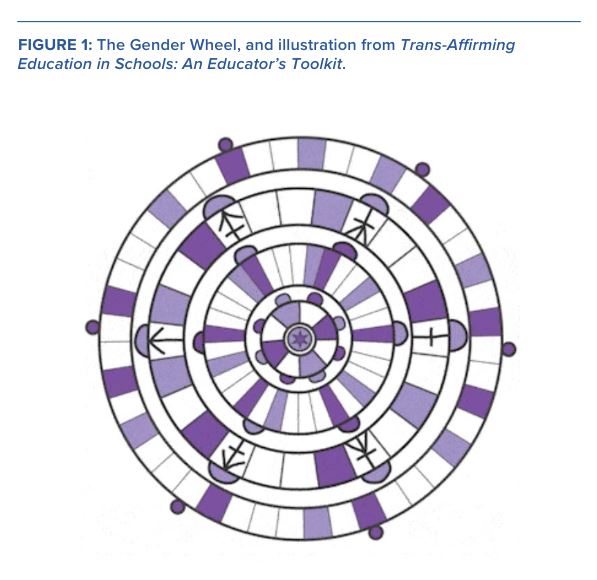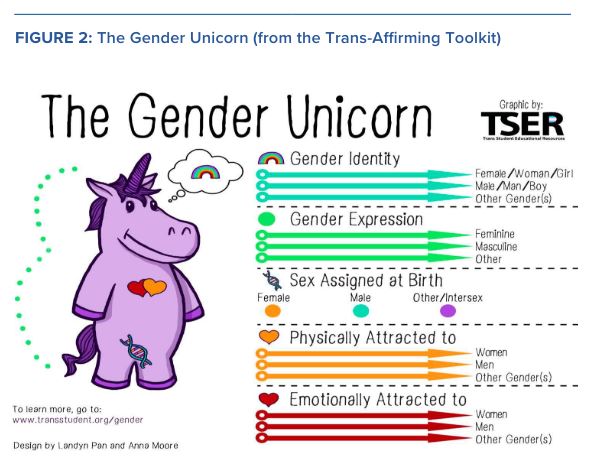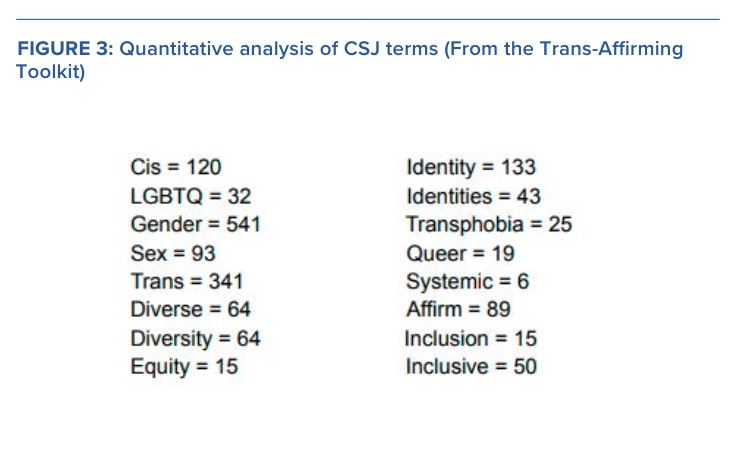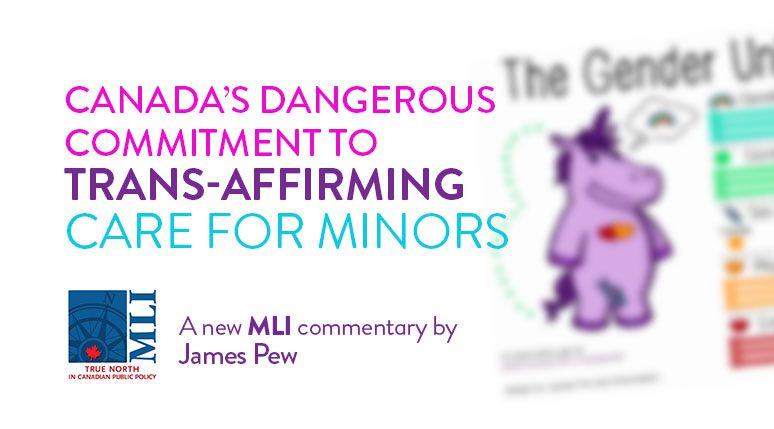By James Pew
May 8, 2024
Across the Western world, a reversal is unfolding. Steps are being taken to drastically limit or ban many of the radical gender-transition interventions and adjacent trans-affirming policies involving minors. These policies have permitted unnecessary surgeries, but also, prescriptions of puberty blocking drugs, dispensed to minors, sometimes within minutes of assessment by a gender specialist, and at other times, to wait-listed patients “prior to their initial appointment” (Blanchard 2022).
That gender-affirming care for minors gained acceptance in the first place, has more to do with a belief in gender identity theory, which holds that children develop a gender identity in early prepubescence, sometimes at odds with their natal sex, than it does with rigorous science (Rokach and Patel 2021).
The adoption of more cautious approaches to treating and dealing with gender non-conforming minors, including banning the controversial practice of life-altering irreversible sex reassignment surgeries, is considered much-welcomed progress by critics of the woke Critical Social Justice (CSJ) movement (Lindsay 2020).
According to the American Society of Pediatricians (ACP), studies have shown that puberty blockers are associated with “osteoporosis, mood disorders, seizures, cognitive impairment and, when combined with cross-sex hormones, sterility.” And, that cross-sex hormones increase the risk of: “heart attacks, stroke, diabetes, blood clots, and cancers across their lifespan.” In addition, “physically healthy transgender-believing girls are being given double mastectomies at 13 and hysterectomies at 16, while their male counterparts are referred for surgical castration and penectomies at 16 and 17.” The ACP is not alone in the view that “affirming transition in children is about mutilating and sterilizing emotionally troubled youth” (American College of Pediatricians 2024).
The Canadian Gender Report (CGR) is “a non-partisan, non-religious coalition of Canadian parents, healthcare professionals, and others,” who advocate for less radical, more science-based approaches to gender incongruence among minors. CGR have published their own set of guidelines in a document entitled “Supporting Gender Questioning Students in Canadian Schools,” which they describe as prioritizing “the present and long-term health and well-being of all people who experience gender distress based on scientific evidence” (Canadian Gender Report 2024).
Parent groups have related concerns, not directly involving drugs or surgeries, about a mode of psychological/emotional intervention within the framework of “gender affirming care.” Under this framework it is thought to be beneficial for gender non-conforming students to “socially transition” to an alternate chosen gender identity. This includes the non-medical “affirming” of non-binary and trans identities and/or the practice of changing one’s name and/or pronouns.
Critics argue that social transition sets children on a pathway to medicalization (Zucker 2019). Understandably, this is contentious in Canada because most provinces have policies whereby a student’s social transition can be kept from their parents. Last year’s nationwide “1 Million March 4 Children” was driven in large part by the anger parents felt over these school policies (Kheiriddin 2023).
Social transition can also involve a change of appearance, including dressing and acting like the opposite sex. Advocates say these changes or transitions more closely reflect students’ internal sense of themselves (Trans Student Educational Resources 2024). However, critics question the emphasis on gender and sex, and ask whether gender ideology is merely attempting to deal with the vast array of personality types.
The recent “WPATH Files,” a major bombshell story concerning leaked documents from the World Professional Association for Transgender Health (WPATH), has drastically shaken confidence in the validity of the science behind these radical and experimental practices (Hughes 2024). Arguably the group most responsible for shaping the standards of care around “genderaffirming care” and “transgender medicine,” WPATH has influenced every gender clinic in the world. The leaked documents have raised serious concerns over revelations that the WPATH Standards of Care are not evidence-based. As well, documents reveal that some WPATH clinicians were aware that certain practices were more likely to cause harm but continued to advocate for dangerous treatments (Hughes 2024).
While the WPATH revelations are stunning, announcements of an equally consequential nature have been taking place since COVID. In Britain, the first big reversal occurred in 2022 when the National Health Services (NHS) decided to close the Gender Identity Development Service (GIDS) known as the Tavistock, after an independent review by Dr. Hilary Cass, former president of the Royal College of Paediatrics and Child Health (Kay 2022). In her preliminary report, Cass found that puberty blockers and other aspects of the GIDS model are “not a safe or viable long-term option.”
In March 2024, the NHS concluded, based on a review by the National Institute for Health and Care Excellence (NICE), that puberty blockers would no longer be allowed for minors, stating “there is not enough evidence to support the safety or clinical effectiveness of puberty suppressing hormones to make the treatment routinely available at this time” (Campbell 2024).
Most recently, in early April, in a development that promises to drive a stake through the heart of dangerous gender-affirming practices prescribed to minors, Cass published her final report (Cass 2024).
The Cass Review is a scathing indictment of the practices recommended in WPATH’s standards of care. Cass sees no scientific validity in prescribing puberty blockers, cross-sex hormones, and genital surgeries to minors, and is also critical of the practice of social transition. One section discusses concerns over the anxiety caused after social transition, when a child feels they must “live in stealth” for “fear of being found out” (Cass 2024).
The human-rights charity, Sex Matters, described the findings of the Cass Review as “a global standard-setter, far above anything produced anywhere else” (Sex Matters 2024). With WPATH standards of care now thoroughly debunked, Cass’s evidence-based and common-sense recommendations are poised to influence a new global standard.
Developments in this direction had previously taken place in Europe. The Norwegian Healthcare Investigation Board announced in March of 2023, it would revise its gender affirming care policy for minors, as well as limit the use of puberty blockers, cross-sex hormones, and transition-related surgery, to clinical research environments (Wilder 2023). Other countries, including France, Holland, Finland, Denmark, and Sweden, have done similar things (Abels 2024; Society for Evidence Based Gendered Medicine 2023; Agence France-Presse 2023).
Also worth mentioning is that the Netherlands, where the Dutch Protocols (the original set of guidelines for medically transitioning young people) were developed, has also taken a step back from these controversial practices (Klotz 2023). By March 2024, twenty-four American states had banned or limited genderaffirming care for minors. While in Canada, a small handful of premiers from east to west have demonstrated their opposition (Davis, Jr. 2024).
The first to act was New Brunswick Premier Blaine Higgs, who in 2023 took issue with his province’s policy permitting schools to keep secrets related to gender and social transition from parents. The new policy requires parental consent for students 16 and younger. In the wake of the ensuing controversy, Higgs refused to back down, and confidently framed his pronoun policy as “an election winner” (Alam 2023).
In January, Alberta premier Daniel Smith announced new policies around gender and trans affirmation on X. This included the banning of puberty blockers, cross-sex hormones, and sex-reassignment surgeries for minors (Dawson 2024). From Premier Smith’s message to Albertans:
“Making permanent and irreversible decisions regarding one’s biological sex while still a youth can severely limit that child’s choices in the future. Prematurely encouraging or enabling children to alter their very biology or natural growth, no matter how well intentioned and sincere, poses a risk to that child’s future that I, as premier, I’m not comfortable with permitting in our province.”
Smith’s policies extend to pronoun changes in schools. Students 15 and under now require parental consent.
In Saskatchewan, the provincial government used the Charter of Rights and Freedoms’ notwithstanding clause to enact a similar pronoun policy with consent requirements set at 16. Since then, a provincial judge has ruled activists are allowed to challenge the pronoun policy. In response, the Saskatchewan government has vowed to take an appeal to the Supreme Court of Canada if necessary (Simes 2024).
Because of these developments internationally and domestically, one would think the federal government would have considered the implications of radical gender policies seriously. However, it appears it has not. In January, Canadians learned of a new federally funded publication titled “Trans-Affirming Education in Schools: An Educator Toolkit,” designed to instruct Canadian teachers on issues concerning “gender diverse” students (Kassen, Martino, and Omercajic 2023). The toolkit is chock-full of CSJ language and advocacy for the affirmative approach, which promotes the dangerous and often harmful practices warned about by Cass and others. Since its publication, and despite the WPATH files and the Cass Review, there have been no plans to remove or reverse the Trans-Affirming Toolkit.
Media critics have noted that by funding the document, the federal government seems to be interfering in provincial jurisdiction. “Schools are a provincial matter,” National Post columnist Jamie Sarkonak wrote in January, “but that doesn’t mean the federal government won’t stick its fingers in where it can to drive a social agenda in the classroom” (Sarkonak 2024).
This federal meddling in matters outside its jurisdiction has been a workin-progress in Canada since at least 2015, the beginning of the Trudeau government. On August 28, 2022, the federal government launched the Federal 2SLGBTQI+ Action Plan aimed at “advancing rights and equality for Two-Spirit, lesbian, gay, bisexual, transgender, queer, intersex and additional sexually and gender diverse (2SLGBTQI+) people in Canada.” As explained on the Government of Canada website, the focus was “equity.” More specifically, it is framed as building on work the government had been engaged in since 2015, to “address persisting disparities faced by 2SLGBTQI+ communities,” with the goal of creating a “safer, more inclusive country” (Government of Canada 2022).
In 2023, consistent with this federal initiative, the Social Sciences and Humanities Research Council (SSHRC) of Canada awarded a grant to the Trans-Affirm research team under the leadership of Dr. Wayne Martino, a professor of “Equity and Social Justice Education” at Western University. The researchers authored a report based on a province-wide survey called “Supporting transgender and gender diverse students in Ontario schools.” The Trans-Affirming Toolkit was based on this report.
It is worth mentioning the pattern found in activist-generated research, in which an over-reliance on questionable opinion or survey data is apparent. In the case of Martino’s Trans-Affirm research team, the three Ontario education unions (the Ontario Secondary School Teachers’ Federation, the Elementary Teachers’ Federation of Ontario, and the Ontario Teachers’ Federation) were instrumental in the rollout of the survey. However, it has been welldocumented that these unions have an intense bias towards CSJ operating assumptions, regardless of how unscientific or ahistorical those assumptions may be (Levy 2023). The chances that a broad spectrum of world views was dispassionately harvested by the activist-academics behind the Trans-Affirm research team, and the activist-educators in the unions that facilitated the survey, is quite slim.
Following the simple trail of the research and its funding related to the TransAffirming Toolkit reveals the jump from a survey study contained within a single province, to a federal initiative providing guidance to all Canadian educators. However, the “Supporting transgender and gender diverse students in Ontario schools” survey was only a single local survey that fit under the auspices of a broader international research effort, which began in 2020, called “Supporting Trans and Gender Diverse Youth at School: Policy and Practice.”
It is beyond the scope of this essay to comment in-depth on the history of scholarship and knowledge production that led to the acceptance of such radical gender theories and medical interventions. However, many analysts have placed the ideological beginnings of Critical Social Justice – the general framework responsible for things like the Trans-Affirming Toolkit – around the year 1960 (the radical counter-culture movement that included the rise of the “reformer” New Left).
Paul Buhle’s Marxism in the USA both asked and answered the question, where did all the 1960s radicals go? They became university professors (Buhle 1987). Indeed, the Old Left class-based Marxists, after years of imaginative theorizing, not only assessed the failures of Marxism but also re-theorized around a new cultural antagonism, rather than merely the old economic class-based antagonism. Identity politics entered through the gateway of education, spilled out into the greater society, and before long we ended up with woke educators pushing a “revolutionary” radical gender ideology on their elementary school students.
The new Marxism (neo or cultural Marxism) picked up some postmodernism along the way. Although these two entry points to the new identity politics may be incommensurate in many ways, they share a tendency to analyze the West through a negatively skewed lens. Because of this, both anti-Western modes of speculation were able to set aside their differences and get behind a set of theories from which a new cultural proletariat is now called on by social justice activists to seize control of the means of cultural production.
In practice this still loosely refers to the overthrow of capitalism, however it is no longer contained to material means. The new rationale is that since capitalism causes the “terrible” crime of reproducing Western culture, it is the nuclear family, the gender binary, heterosexuality, whiteness, liberalism, religion, nationalism, and most of the stuff conservatives, traditionalists, and moderate liberals hold dear that are the targets of the woke CSJ activists. These are the things that, through the dynamism of capitalism, reproduce the culture, the norms, and the moral boundaries (taboos) of Western society.
The Trans-Affirming Toolkit is as much engaged in the “struggle” to overthrow capitalism, as it is engaged in the “dismantling” of morality, normativity, and truth. To the woke ones, these struggles are one and the same. A sample from the toolkit: “… many people simply do not identify with the gender that they were assigned at birth and self-identity in a myriad of ways which is reflected in many of the terms that they use” (Kassen, Martino, and Omercajic 2023, 9).
The terminology “assigned at birth” is perhaps the best evidence that the “activist-academics” behind the toolkit have accepted a biologically incorrect, thoroughly unscientific ideology that has been deeply theorized for the purpose of advocating for the interests of a special class deemed “historically marginalized.” Natal sex is identified before birth, with the use of an ultrasound, it is never arbitrarily assigned.
On the same page the authors delve into Canadian history with all the ahistoricism one expects from CSJ scholars: “…in the history of Canada, colonialism and the Church played a significant role in denying and eradicating gender diversity that existed in first Nations (sic) communities through enforced and violent assimilation” (Kassen, Martino, and Omercajic 2023, 9).
A common theme in CSJ activist literature is to lace the contents with an interdisciplinary set of left-of-liberal assumptions. Colonialism for example, is an area where there is much scholarly debate. Not all commentators, including most credible historians, accept the assumptions of post-colonial theory (a CSJ theory). What insight could Martino possibly have, a specialist in Equity and Social Justice Education, that supersedes generations of empirical historical research done in the service of truth, not social justice, by eminent scholarly historians?

Modern academics, like Bruce Gilley and Nigel Biggar have published muchneeded works illustrating through meticulous evidentiary research that the settling and developing of British colonies during the colonial period was nothing like the dark conception found in biased, hyper-reductive, antiWestern theories (Gilley 2017; Biggar 2023). It is fair to say that postcolonial academics demonstrate more skill at wielding a derivative of the CSJ terminology found in the Trans-Affirming Toolkit than accomplishing any of the difficult reasoning, fact-finding and evidence-gathering involved with traditional modes of knowledge production indicative of the colonial paradigm.
In this vein, CSJ activists are fully committed to “decolonizing.” The “Gender Wheel” for example (recommended in the toolkit) is a teaching resource that claims to draw on “Mayan and Aztec calendrical wheels to help us decolonize our thinking.” (Kassen, Martino, and Omercajic 2023, 15).
Critics have claimed that CSJ activists share our language, but not our dictionary. In this way, CSJ ideas and practices have entered institutions like a “Trojan Horse.” We see this in the double meanings of terminology. Coded CSJ terms can be considered to have a “Motte and Bailey” component, where the common meanings are generally agreeable. However, the intended deliberately hidden activist meanings can be intensely disagreeable. For instance, “affirmative care” sounds great; the double mastectomy of a 13-year-old, not so great.
For this reason, it is worth perusing the gender lexicon offered in module one, as well as the Education Training Glossary created by the City of Toronto agency The 519 – a resource recommended in the toolkit (City of Toronto 2024). Compare how CSJ terminology is defined in these activist sources, versus the online social justice lexicon offered by social justice critic, Dr. James Lindsay (Lindsay 2024).
When the activists say “disrupt” or “dismantling” (which they do, six times in the Trans-Affirming Toolkit) they are referring to things like the nuclear family, the gender binary, and normativity. Indeed, Queer Theory – on which so much CSJ “scholarship” is based – exists for the purpose of dissolving boundaries of normativity. In Queer Theory, childhood is considered “performative,” and children “oppressed.” They must be “liberated,” so they can exercise “agency.” This extends to “sexual agency,” which intersects with the concept of the “mature minor” – two concepts that have no business intersecting (Butler 2006; Dyer 2014; Linde 2019).
The following brief analysis of the Trans-Affirming Toolkit aims to highlight some of the highly esoteric and deceptive CSJ jargon.
The Trans-Affirming Toolkit
The Gender Unicorn idiographic found in the Trans-Affirming Toolkit is a recommended starting point for students as it’s “an example of how the Gender Unicorn can be used to facilitate conversations with students around the different aspects of their own identity” (Kassen, Martino, and Omercajic 2023, 10).
The toolkit is organized into five modules. The first deals with “vocabulary related to gender identity” and “language that names the specific kinds of oppression related to gender identity.”

Module two focuses on “gender justice” and “gender expansiveness.” The Third module introduces the concept of a “trans-affirming school community.” It suggests “thinking beyond ‘inclusion’ to address the roots of trans marginalization and violence against trans and gender diverse students.”
The fourth module is dedicated to matters of “trans policy.” And the fifth has two action plans aimed at supporting and affirming the ideology laid out in the previous modules.
Figure 3 (page 12) is a table offering a quantitative analysis of the CSJ terms used in the Trans-Affirming Toolkit. These terms either have a coded alternate CSJ meaning, or some other special CSJ significance that is usually not apparent to the uninitiated.
In another paragraph, which demonstrates the liberal (pun intended) use of CSJ jargon (in bold letters), we find some explanation of the toolkit’s purpose:
“It is important to keep in mind that trans people and trans students… experience barriers, marginalization and microaggressions which are systemic in nature. These barriers are met when accessing affirming care and in the education system where students’ affirmed names and pronouns are not always respected and where safe access to gender inclusive washrooms is not always guaranteed or necessarily facilitated in schools.” (Kassen, Martino, and Omercajic 2023, 9).

“Safe access to gender inclusive washrooms” is a euphemism for female washrooms rendered unsafe for biological females. There is no better example than the 2021 sexual assault of a teenage female student at a school in Loudon County, Virgina. The assault occurred in the girls’ washroom by a biological male student. The perpetrator committed the same offence at a different school, was transferred, and repeated his crime. The school district did not begin a Title IX investigation until nearly five months after the incident. The family is now suing for $US30 million (Venezky and Wells 2023).
These dangerous and experimental gender-affirming practices, based not on science, but on Critical Social Justice ideology, have caused far too much harm to minors. It is time for Canada to follow the advice of the Cass Review, rethink its approach, and redesign its policies concerning the affirmative model around sensible evidence-based standards. Starting with cancelling the TransAffirming Toolkit.
About the Author
James Pew is an independent writer and researcher whose work appears in a host of Canadian media as well as on Substack at Woke Watch Canada and The Turn. A strong advocate for liberalism, Pew focuses his research on “culture wars” issues, Indigenous issues, Canadian history, and Israel.
References
Abels, Grace. 2023. “Gender-affirming surgery is not banned for minors in Europe but is mostly inaccessible.” Politifact, The Poynter Institute, September 6, 2023. Available at https://www.politifact.com/factchecks/2023/sep/06/ instagram-posts/gender-affirming-surgery-is-not-banned-for-minors/.
Agence France-Presse. 2023. “Sweden puts brakes on treatments for trans minors.” August 2, 2023. Available at https://www.france24.com/en/ live-news/20230208-sweden-puts-brakes-on-treatments-for-trans-minors.
Alam, Hina. 2023. “N.B. gender policy in schools: Premier won’t back down, says it’s an election winner.” The Canadian Press/CP 24, December 28, 2023. Available at https://www.cp24.com/news/n-b-gender-policy-in-schoolspremier-won-t-back-down-says-it-s-an-election-winner-1.6702935.
American College of Pediatricians. 2024. “Transgender Interventions Harm Children: No Evidence that Transgender Interventions are Safe for Children.” Policy statement accessed April 2024. Available at https://acpeds.org/ transgender-interventions-harm-children.
Biggar, Nigel. 2023. Colonialism: A Moral Reckoning. Available at https://www. amazon.ca/Colonialism-Moral-Reckoning-Nigel-Biggar/dp/0008511632?&li nkCode=sl1&tag=wokewatchcana-20&linkId=7e4131248a5d8afc64c8d90f9 21443e6&language=en_CA&ref_=as_li_ss_tl.
Blanchard, Ray. 2022. “Advisory letter from Gender Pathways Service, Children’s Hospital, London Health Sciences Centre. X (Twitter) post, August 2, 2022. Available at https://twitter.com/BlanchardPhD/ status/1554540795222441994.
Buhle, Paul. 1987. Marxism in the USA: From 1870 to the Present Day. Available at https://www.amazon.ca/Marxism-USA-1870-Present-Day/dp/086091848 3?&linkCode=sl1&tag=wokewatchcana-20&linkId=e15a1463b9025d7d30c 7c606bbd2cfd6&language=en_CA&ref_=as_li_ss_tl.
Butler, Judith. 2006. Gender Trouble: Feminism and the Subversion of Identity. Available at https://www.taylorfrancis.com/books/ mono/10.4324/9780203824979/gender-trouble-judith-butler.
Campbell, Dennis. 2024. “Children to stop getting puberty blockers at gender identity clinics, says NHS England.” The Guardian, March 12, 2024. Available at https://www.theguardian.com/society/2024/mar/12/children-to-stopgetting-puberty-blockers-at-gender-identity-clinics-says-nhs-england.
Cass, Hillary. 2024. “The Cass Review: Final Report.” National Health Service England, April 2024. Available at https://cass.independent-review.uk/home/ publications/final-report/.
Canadian Gender Report. 2024. “Supporting Gender Questioning Students in Canadian Schools.” Published September 2023, pdf accessed April 2024. Available at https://genderreport.ca/resources/.
City of Toronto. 2024. “Education and Training: The 519 Glossary of Terms.” The 519, accessed April 2024. Available at https://www.the519.org/ education-training/glossary/.
Davis Jr., Elliott. 2024. “States That Have Restricted Gender-Affirming Care for Trans Youth.” U.S. and World News, March 29, 2024. Available at https://www.usnews.com/news/best-states/articles/2023-03-30/what-isgender-affirming-care-and-which-states-have-restricted-it-in-2023.
Dawson, Tyler. 2024. “A guide to Alberta’s new gender rules.” National Post/ Pressreader, February 2, 2024. Available at https://www.pressreader.com/ canada/national-post-latest-edition/20240202/281633900128126.
Dyer, Hannah. 2014. “Becoming Otherwise: The Queer Aesthetics of Childhood.” Doctoral dissertation, Department of Social Justice Education, University of Toronto. Available at https://tspace.library.utoronto.ca/ bitstream/1807/68298/1/Dyer_Hannah_M_201411_PhD_thesis.pdf.
Gilley, Bruce. 2017. “The Case for Colonialism.” National Association of Scholars, original post updated June 6, 2021 and accessed April 2024. Available at https://www.nas.org/academic-questions/31/2/the_case_for_colonialism.
Government of Canada. 2023. “Progress on the Federal 2SLGBTQI+ Action Plan.” Modified September 9, 2023, accessed April 15, 2024. Available at https://www.canada.ca/en/women-gender-equality/free-to-be-me/federal2slgbtqi-plus-action-plan/ongoing-commitment-action.html#prioritize.
Hughes, Mia. 2024. “The WPATH Files: Pseudoscientific surgical and hormonal experiments on Children, Adolescents, and Vulnerable Adults.” Environmental Progress, March 4, 2024. Available at https://environmentalprogress.org/ big-news/wpath-files.
Kay, Barbara. 2022. “Barbara Kay: Tavistock closure highlights harms caused by radical gender theorists.” National Post, August 6, 2022. Available at https:// nationalpost.com/opinion/barbara-kay-tavistock-closure-highlights-harmscaused-by-radical-gender-theorists.
Kassen, Jenny, Wayne Martino, and Kenan Omercajic. 2023. “Trans-Affirming Education in Schools: An Educator Toolkit.” The University of Western Ontario. Available at https://trans-affirm.edu.uwo.ca/toolkit/index.html.
Kheiriddin, Tasha. 2023. “Tasha Kheiriddin: School ‘inclusion’ excludes parents. No wonder they marched.” National Post, September 21, 2023. Available at https://nationalpost.com/opinion/tasha-kheiriddin.
Klotz, Frieda. 2023. “A Teen Gender-Care Debate Is Spreading Across Europe.” The Atlantic, April 28, 2023. Available at https:// www.theatlantic.com/health/archive/2023/04/gender-affirmingcare-debate-europe-dutch-protocol/673890/.
Levy, Sue-Ann. 2023. “LEVY: The union bullies care about control, not kids.” True North Centre for Public Policy, September 18, 2023. Available at https:// tnc.news/2023/09/18/levy-union-bullies/.
Linde, Robyn. 2019. “The Rights of Queer Children: The Denial of Children’s Sexual Agency in the Convention on the Rights of the Child.” International Journal of Children’s Rights. Available at https://digitalcommons.ric.edu/cgi/ viewcontent.cgi?article=1591&context=facultypublications.
Lindsay, James. 2020. “Naming the Enemy: Critical Social Justice.” New Discourses. Available https://newdiscourses.com/2020/02/ naming-enemy-critical-social-justice/.
Lindsay, James. 2024. “Translations from the wokish.” New Discourses, revised January 29, 2020, accessed April 2024. Available at https://newdiscourses.com/ translations-from-the-wokish/.
Rokach and Patel. 2021. “Sexual orientation.” Human Sexuality: Function, Dysfunction, Paraphilias, and Relationships. Available at https://www. sciencedirect.com/topics/psychology/gender-identity#:~:text=Gender%20 identity%20describes%20the%20individual%27s,does%20not%20have%20 to%20be.
Sarkonak, Jamie. 2024. “Jamie Sarkonak: ‘Trans-affirming toolkit’ tells teachers to put ideology above biology.” National Post, January 22, 2024. Available at https://nationalpost.com/opinion/jamie-sarkonak-trans-affirming-toolkittells-teachers-to-put-ideology-above-biology#:~:text=Schools%20are%20a%20provincial%20matter,poor%20scholarship%20and%20ideological%20preaching.
Sex Matters 2024. “The Cass Review is a damning indictment of what the NHS has been doing to children. Assessment of ‘Cass Review: Final Report.’” Available at https://sex-matters.org/posts/updates/the-cass-review-is-adamning-indictment-of-what-the-nhs-has-been-doing-to-children/.
Simes, Jeremy. 2024. “‘Historic ‘decision’: Saskatchewan government says pronoun law may go to Supreme Court.” The Canadian Press/CTV News Regina, February 16, 2024. Available at https://regina.ctvnews.ca/historicdecision-saskatchewan-government-says-pronoun-law-may-go-to-supremecourt-1.6771998.
Society for Evidence Based Gendered Medicine. 2023. “Denmark Joins the List of Countries That Have Sharply Restricted Youth Gender Transitions.” August 17, 2023. Available at https://segm.org/ Denmark-sharply-restricts-youth-gender-transitions.
Trans Student Educational Resources. 2024. “Gender Unicorn.” Available at https://transstudent.org/gender/.
Venezky, Emily and Ciara Wells. 2023. “Sexual assault victim files $30M lawsuit against Loudoun Co. school board.” WTOP News, October 6, 2023. Available at https://wtop.com/loudoun-county/2023/10/school-bathroom-sexualassault-victim-files-30m-lawsuit-against-loudoun-co-school-board/
Wilder, Sarah. 2023. Daily Caller, March 10,2023. “Norway Decides ‘Gender Affirming Care’ Is ‘Not Evidence Based.’” Available at https://dailycaller. com/2023/03/10/norway-health-care-system-transgender-gender-affirmingcare-evidence-baed/.
Zucker, Kenneth J. 2019. “Debate: Different Strokes for Different Folks.” Child and Adolescent Mental Health 25, May 2019. Available at https://www. researchgate.net/publication/333516085_Debate_Different_strokes_for_ different_folks.






